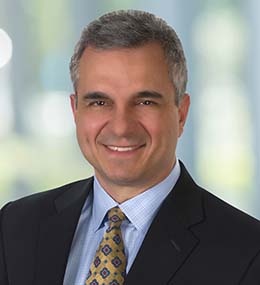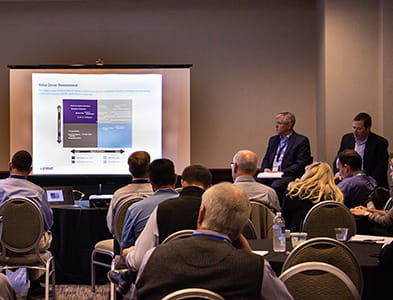Financial Buyers Giving Strategics a Run for the Money – and Deals – in the Midwest
Financial Buyers Giving Strategics a Run for the Money – and Deals – in the Midwest
The table is set for record or near-record levels of M&A activity in the nation’s heartland in 2019.

This article was written by Mergermarket, the leading provider of forward-looking M&A intelligence and data to M&A professionals and corporates around the world.
By Jeff Sheban
Mergermarket
www.mergermarket.com
Jeff.Sheban@acuris.com
Ongoing competition between strategic and financial buyers for the best assets coming to market will continue to drive Midwest merger and acquisition (M&A) activity, investment professionals say.
Add motivated sellers to the mix, seeking to take advantage of historically high valuations and low interest rates, and the table is set for record or near-record levels of M&A in the nation’s heartland in 2019.
“No one wants to miss the window on this cycle,” said Nick P. Jachim, managing director and head of the investment banking group for Stout. The volume of deals being managed by the Chicago-based investment bank has grown by more than 50% year over year, “and we expect that trend to continue. The debt markets continue to be wide open for good, consistently growing, profitable companies and we’re seeing this play out across multiple industries” including industrials, healthcare, technology, media, and telecommunications, and consumer, he said.
While conventional wisdom holds that a large strategic can generally outbid all but the largest and most aggressive private equity (PE) firms in a process, the dynamic could be shifting. “Strategic buyers are still doing deals, but PE is driving the market,” Jachim said. “Three-quarters of our sell-side clients are being acquired by PE or PE-backed businesses.”
Chicago-based Cook M&A Advisory Services specializes in finding platform buys, add-ons and executives for PE firms. Managing Director Sven Kins also sees favorable cost of capital benefiting financial buyers in 2019. “Conditions are still very ripe for private equity groups to deploy plenty of capital between new platform opportunities and add-ons,” he said, with packaging, med-tech and industrial controls/technology attractive sectors for PE in the Midwest.
John R. Thornburgh, a partner with the Indianapolis-based law firm Ice Miller, said there are still many owners of middle market and lower middle market firms in the Midwest who are intent on selling their companies in 2019, which could “unleash a very strong buyer’s market for PE firms and a high level of deal activity.
Yet strategics aren’t conceding the field to financials, said Charles V. Aquino, managing director for Cleveland-based Western Reserve Partners, a division of Citizens Capital Markets. “Both groups, strategics and financial buyers, are very hungry and highly motivated,” he said, resulting in rising prices. Aquino said 61% of deals completed in 2018 exceeded 10x enterprise value/EBITDA, the highest on record.
Selling noncore assets is another way to take advantage of the same high multiples and buy-side demand. Cincinnati-based Kroger [NYSE:KR] sold its 762 convenience stores in 18 states to EG Group, giving the U.K.-based retailer its first exposure to the U.S. EG Group subsequently acquired 225 Minit Mart stores from Westlake, Ohio-based TravelCenters of America [NASDAQ:TA], with the two transactions totaling $2.5 billion.
“A very nice business in the Midwest is a great foothold to have in the U.S. market,” Aquino said.
Andy Jessen, managing director and head of North American M&A for William Blair, said approximately 40% of the firm’s 2018 deal activity was cross border, with European, Chinese and Japanese buyers the most active in the Midwest and beyond. Jessen said Chinese investment in the U.S. tapered in the second half of 2018 due to regulatory issues and slowing Chinese economic growth, while Middle Eastern and South American interest in US assets has been “muted by lower energy prices.” However, Middle Eastern sovereign wealth funds are increasingly looking to the Midwest and other U.S. regions for nonenergy assets, in a bid to diversify, he said.
With the current economic expansion approaching nine years, no one expects boom times to last forever. Thornburgh said higher interest rates, volatile equity markets, trade policy concerns and even worker shortages represent gathering clouds on the horizon. If those factors don’t dampen the expectations of sellers, “it could result in difficulty for buyers and sellers to agree on price and other terms.”




